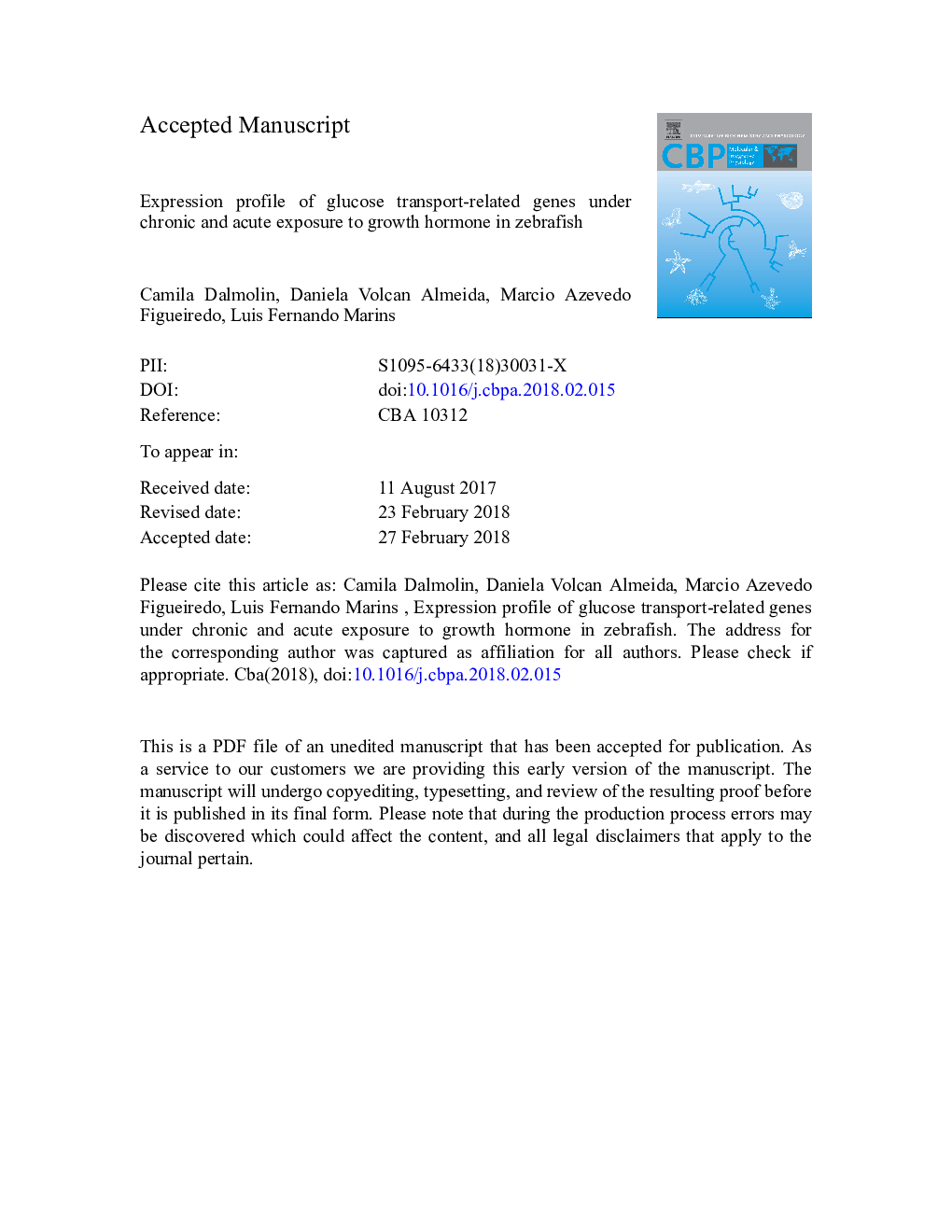| Article ID | Journal | Published Year | Pages | File Type |
|---|---|---|---|---|
| 8318154 | Comparative Biochemistry and Physiology Part A: Molecular & Integrative Physiology | 2018 | 16 Pages |
Abstract
The brain is a highly demanding organ in terms of energy requirements, and precise regulatory mechanisms must operate to ensure adequate energy delivery to maintain normal neuronal activity. Of the energy-promoting substrates present in the circulation, glucose is preferred by the brain, and as with all other substrates, its utilization depends on the presence of humoral factors such as hormones including growth hormone (GH). Glucose enters the cells though specific transport proteins. Among all transporter families and subtypes described to date, the most studied ones are the glucose transporters (GLUTs). The aim of this study is to determine a possible relationship between GH and GLUTs. Therefore, we evaluated the effect of GH-transgenesis and recombinant GH injections upon GLUT expression in the brain of male zebrafish. Overall, the results demonstrated that increasing the GH concentrations above the normal level, via transgenesis or injection, in the fish may impair energy uptake by the brain. This appeared to occur through downregulation of most of the analyzed GLUTs.
Related Topics
Life Sciences
Biochemistry, Genetics and Molecular Biology
Biochemistry
Authors
Camila Dalmolin, Daniela Volcan Almeida, Marcio Azevedo Figueiredo, Luis Fernando Marins,
